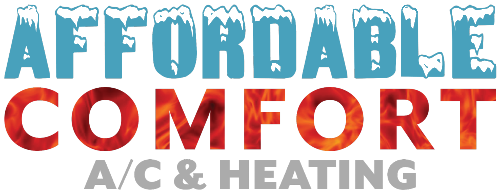Installing Space Heaters or Supplemental Heating Systems
Understanding the various types of supplemental heating systems, their benefits, and proper installation methods is vital for maximizing efficiency and maintaining safety.
Many homeowners consider enhancing their heating systems with supplemental options as winter approaches. Space heaters and other auxiliary heating devices can provide targeted warmth to specific areas of a home, potentially increasing comfort while managing energy costs. Understanding the various types of supplemental heating systems, their benefits, and proper installation methods is vital for maximizing efficiency and maintaining safety.
Types of supplemental heating systems
Space heaters come in several varieties, each suited to different needs and environments. Convection heaters, including oil-filled radiators, provide consistent heat in enclosed spaces. These units warm the air, which then circulates throughout the room.
Radiant heaters, on the other hand, directly warm objects and people in their path. These are particularly effective for quick, localized heating in bathrooms or workspaces.
Fan-forced heaters use an internal fan to blow air over a heating element, quickly distributing warmth throughout a room. These units are often compact and portable, making them suitable for various settings.
Benefits of supplemental heating
Incorporating space heaters or other supplemental heating systems into a home can offer several advantages. These devices allow for zone heating, where specific areas of the house can be warmed without heating the entire structure. Zone heating can save energy, especially in homes where certain rooms are used more frequently than others.
Supplemental heating systems also provide flexibility in temperature control. Occupants can adjust the heat in individual rooms to suit their preferences without affecting the comfort of others in different areas of the home.
Considerations before installation
Several factors should be considered before installing a supplemental heating system. The size of the space to be heated is a crucial consideration, as it will determine the appropriate capacity of the heater. Overestimating or underestimating the required heating power can lead to inefficiency or inadequate warming.
The home's existing electrical infrastructure must also be evaluated. Many space heaters require significant electrical current, and older homes may need electrical upgrades to accommodate these devices safely.
Professional installation vs. DIY
While homeowners can easily set up many portable space heaters, more permanent supplemental heating solutions often benefit from professional installation. A home repair specialist can assess the home's heating needs, recommend appropriate systems, and install them safely and efficiently.
Professional home repair services are particularly valuable when dealing with hardwired systems like baseboard heaters or wall-mounted units. These installations may require modifications to the home's electrical system, which qualified technicians should only perform to correspond with local building codes and safety standards.
Proper placement and usage
The effectiveness and safety of space heaters largely depend on their placement within a room. Heaters should be positioned on level surfaces, away from foot traffic, and at least three feet from combustible objects such as curtains, furniture, or bedding.
Only heaters specifically designed for bathrooms or other damp areas should be used. These units typically have ground fault circuit interrupter (GFCI) protection to prevent electrical hazards.
Maintenance and safety checks
Regular maintenance is key to keeping supplemental heating systems operating safely and efficiently. Dust and debris should be cleaned from heaters periodically, following the manufacturer's instructions. Checking for leaks is an essential part of routine maintenance for oil-filled radiators.
It is recommended that all supplemental heating devices be thoroughly inspected before each heating season. Cords should be examined for fraying or damage, and any units showing signs of wear or malfunction should be repaired or replaced by a professional home repair service.
Energy-saving tips
Several strategies can be used to maximize the benefits of supplemental heating systems while minimizing energy consumption. For example, heaters with ceiling fans can help distribute warm air evenly throughout a space.
Implementing programmable thermostats or timers with space heaters can prevent unnecessary operation when rooms are unoccupied. Additionally, sealing drafts and improving insulation in areas where supplemental heat is needed can enhance the efficiency of these systems.
Winter preparedness
Reviewing and updating a home's heating strategy becomes crucial as colder months approach. A professional home repair company can comprehensively assess the existing heating system and recommend appropriate supplemental solutions. By addressing heating needs proactively, homeowners can avoid discomfort and potential emergencies during the coldest days of winter.
Supplemental heating systems offer valuable solutions for enhancing comfort and managing home energy costs. Homeowners can effectively augment their existing heating systems by carefully selecting appropriate devices, verifying proper installation, and following safe usage practices. Whether opting for portable space heaters or more permanent installations, the guidance of a professional home repair specialist can help guarantee optimal performance and safety throughout the winter season and beyond.
Affordable Comfort A/C and Heating offers competitively priced residential and commercial heating services, including heating repair and maintenance, heating installation, furnace installation, furnace repair, furnace replacement, and furnace maintenance and tune-up. Talk to our experts at 602-574-1205.

